Chickens can be very diverse in what they eat. However, it’s important to note that chickens can also be sensitive to a particular food. There are things humans can eat, but chickens can because they have different anatomy. While some people raise hens for their eggs, you may wonder, can chickens eat eggshells?
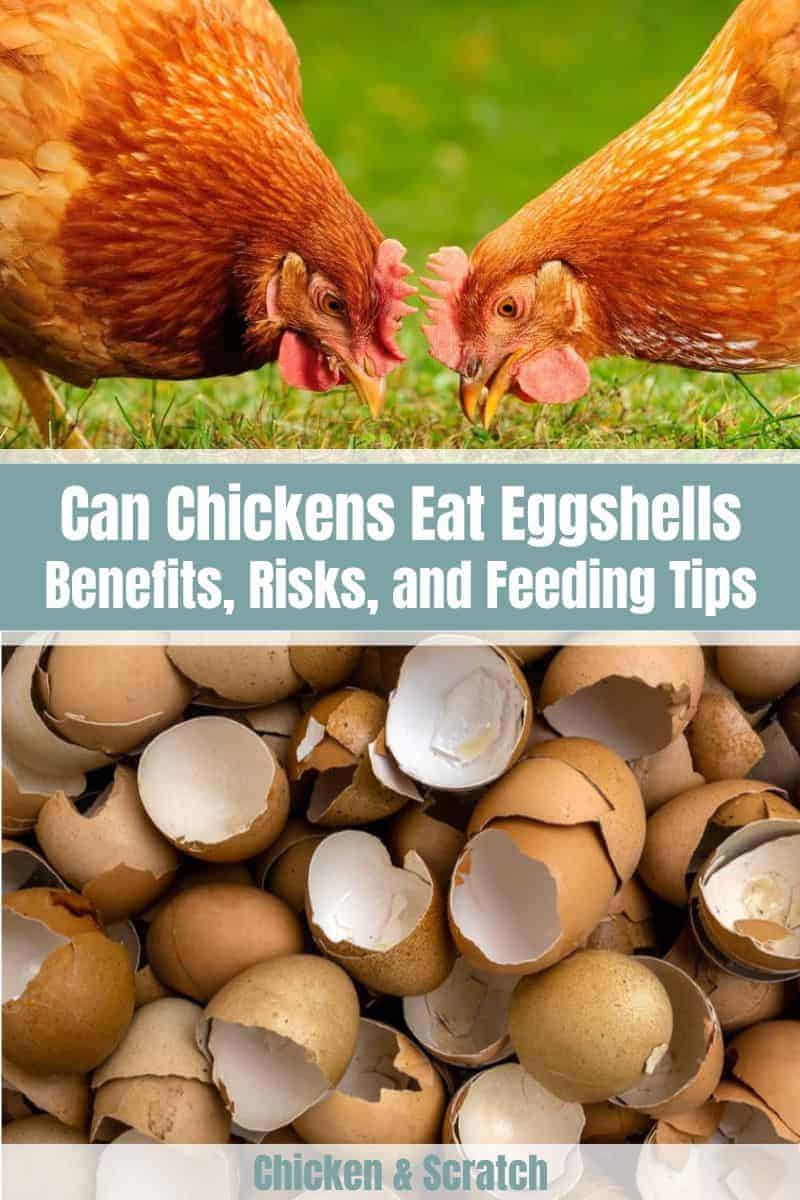
Exploring Eggshells: What Exactly are They?
While everybody knows how eggs are essential, relevant sources of certain nutrients like protein, fat, iron, and many more. Eggs are far from being expensive, and they are very much affordable relative to other protein sources.
Another thing about eggs is that they are very versatile. You may already know that you can cook eggs in many ways and styles. They can be poached, baked, fried, scrambled, and whipped into a dessert.
Eggs offer the best of both worlds, from savory dishes to desserts like custard and many more. In this note, you may wonder if eggshells are, in fact, also useful, whether it be for human consumption or for your chickens.
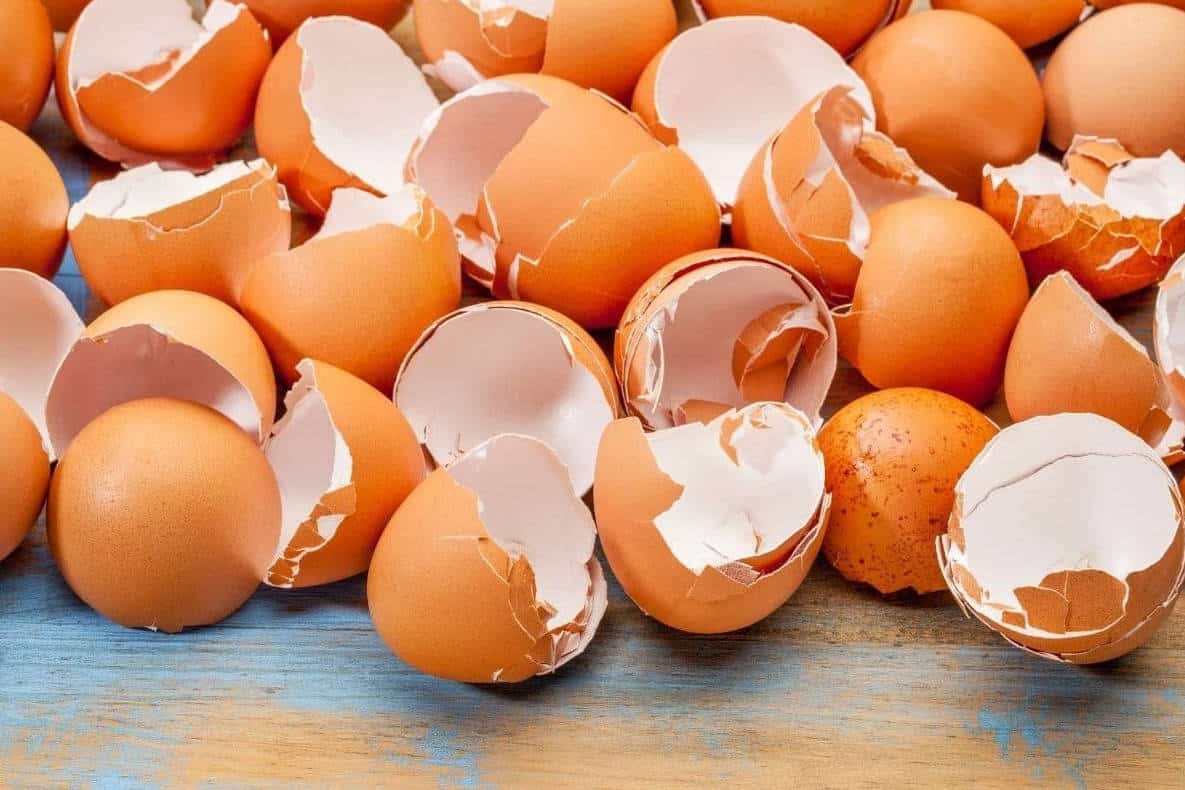
The answer is yes for both chickens and humans: eggshells are edible. Eggshells even have good nutrients to offer the human body. Naturally, eggshells would be a good source of Calcium. Calcium is essential in producing eggs, so feeding your chickens their necessary dose of calcium-rich food is essential if you raise poultry for eggs.
While it would be easy for the regular human body to get their daily Calcium, it can be difficult for others. Yes, there are several calcium sources, but others can still not satisfy their daily requirements. This could result from diets that are too restricted or when someone is following a strict diet or meal plan, low food consumption, or lack of food.
Calcium carbonate is the primary component of eggshells, along with minor levels of protein and various other organic substances. And so, eating eggshells may be beneficial to your health, particularly if you want to improve your calcium consumption, according to some rather persuasive data.
A few clinical and scientific investigations support the argument that eating eggshells benefit one’s health. According to a study conducted in 2003 and published in the International Journal of Clinical Pharmacology Research, eggshell powder, which also directly translates to finely crushed eggshells, is an excellent source of Calcium.
Crushed eggshells or eggshell powder may favor bone metabolism, as mentioned in the Journal. All of these, of course, in moderation. And if you happen to have other options, it would be much better.
Eggshell Nutrients for Chickens
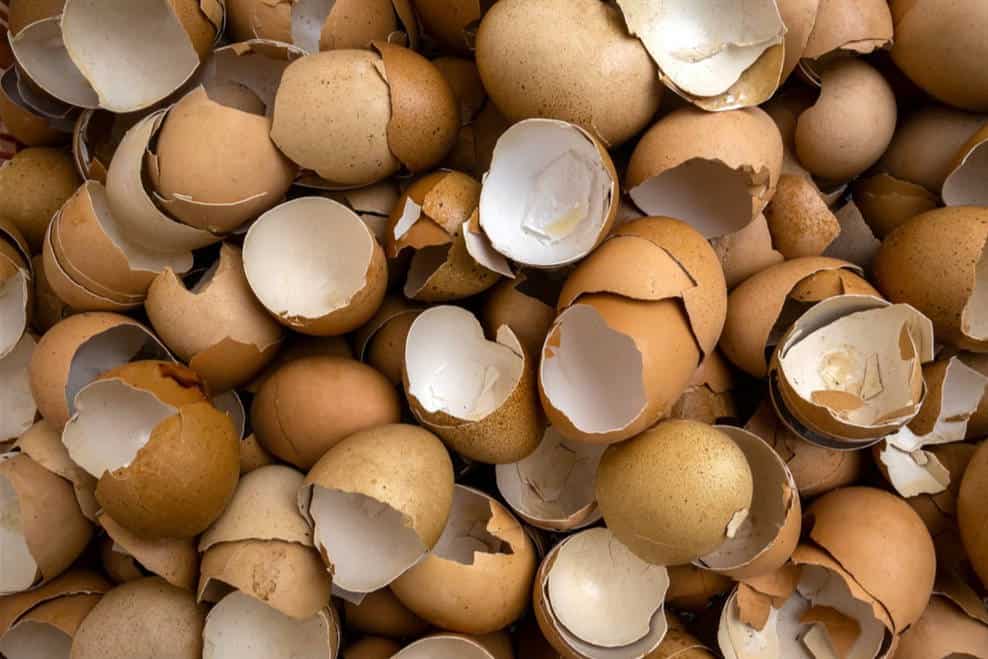
While chickens have a relatively diverse palate, they can be susceptible to their food, so it’s important to get to know your chicken and regularly check up on them. On the other hand, some nutritional values eggshells can offer your chickens.
Calcium
Calcium is essential not only for laying hens but for the whole poultry population. You might already know the importance of Calcium in egg production, which correlates to the eggshell’s calcium abundance. Calcium is required in large amounts for the process of laying eggs.
This is because Calcium plays a vital role in egg formation. Calcium is responsible for the construction of an egg’s rigid barrier as well as its membrane. In other words, it would be impossible for laying chickens to produce eggs without Calcium.
On the other hand, the importance of Calcium also means that there are consequences when there is a lack of it in your poultry’s diet. Inadequate calcium intake can result in a variety of health issues in a chicken. Low calcium intake can result in poor-quality eggs. Eggs with poor quality are more likely to break open on their own. Their shells would be pretty weak and will not make it through a long time before it breaks. There is a good chance that the fragile and brittle shell won’t even make it to the kitchen and would crack open and be subject to trash can delivery.
This means that existing strong eggshells are products of chickens that have had ample Calcium intake. And so, if you give a hen hard eggshells to eat, you’ll provide them with an additional source of the Calcium they require.
In turn, this will result in the eggs they lay being of a higher quality. Of course, they would still need a balanced diet, but eggshells as additional calcium sources are an excellent way to save and keep them healthy.
Magnesium, Potassium, Sodium, Phosphorous
While these nutrients do not represent a significant percentage of eggshells, they are still present and help nourish your chickens.
Main Nutritional Content of Eggshells
Nutrient | Amount per 100 grams |
Calcium | 381 mg |
Phosphorus | 118 mg |
Magnesium | 24 mg |
Potassium | 8 mg |
Sodium | 9 mg |
Iron | 0.9 mg |
Zinc | 0.1 mg |
Copper | 0.05 mg |
Manganese | 0.01 mg |
Selenium | 0.1 µg |
Vitamin E | 0.05 mg |
Vitamin K | 0.03 µg |
Vitamin B6 | 0.01 mg |
Folate | 3 µg |
Choline | 4 mg |
Drying Eggshells for Your Chickens
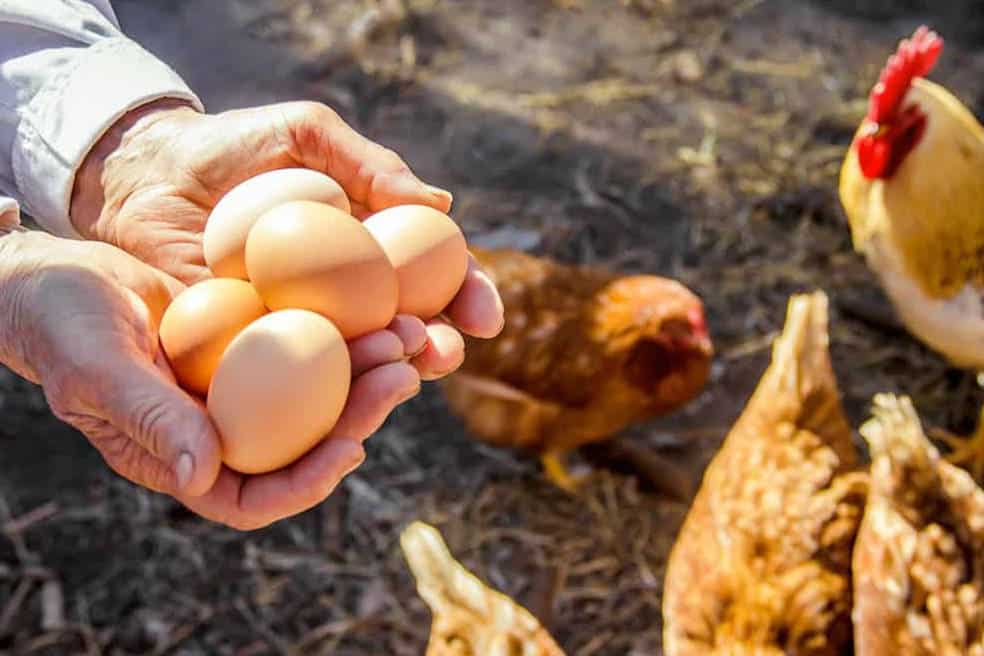
In preparing eggshells for your chicken, you can incorporate different processes depending on your mood or preference. Also, it’s always important to consider your chickens’ meal plan. Here are some of the most critical points in feeding your chickens eggshells.
Step 1. Clean the eggshells
As you pick up the leftover eggshells from the coop or the kitchen, they may not be in the cleanest condition. This is considering where you have picked them up. Although chickens peck the ground and are not as particular to cleanliness, it’s essential to note that clean food is good.
This is true even for chickens. Chickens rely heavily on their vision in their decision whether to eat a particular food they spot or not. Cleaning the eggshells also makes sure you keep them safe for the chickens.
Step 2. Preheat the oven for drying
Next step would be to dry the eggshells. Apart from eggshells being easier to handle when dry, they are also easy to crush. Crushing eggshells is an essential step, so it would be neater to do it when the eggshells are dry.
If it’s wet, it might just be pretty messy. Prepare the oven to 350 degrees Fahrenheit or 177 degrees Celsius. It is essential to check that one of the racks in your oven is positioned in the center. Ensuring it’s in the center helps the trays receive fair heat distribution.
This way, anything you cook would cook evenly inside. Start by turning on your oven and allowing it to reach the desired temperature before proceeding.
Step 3. Spread
The egg membrane should be dry as it enables the eggshell to hold its shape. Drying the membrane makes it possible to separate them more finely. Spread the shells out in a single layer on a baking sheet. Make sure they are cracked in half as much as possible to get a fair dry.
Step 4. Cook
Place the eggshells in the oven to bake them for ten minutes. After ten minutes, remove the eggshells from the stove. Make sure you watch out for yourself so you don’t get burnt. Next, allow them to cool to room temperature before proceeding. The eggshells are sure to be easier to break and crush once you apply pressure on them.
Feeding Your Chickens Eggshell
Since you wouldn’t know when you would need an extra batch of calcium source, it would be helpful to have a container dedicated to crushed eggshells. It’s like how people usually have containers and jars for powdered milk, cereals, tea, etc.
An important thing to remember when feeding chickens is that you should always provide your chickens with access to food. You can ensure they get their needs by providing a coop dish containing ground eggshells. The crushed eggshells should be placed in a feeding container.
Also, ensure the plate is placed next to the water bowl to promote hydration. When it becomes empty, the dish containing the eggshells should be refilled. However, an important thing to remember is not to rely on eggshells.
Calcium will be added to the chickens’ diet as they satisfy their natural urge to peck at the shells. Eggshells are just there to supplement extra Calcium. Your chickens need their regular meal and recommended diet every day.
Mix and match
Eggshells can be disguised by incorporating them into your chicken’s regular diet. You can do this by Mixing ordinary feed with powdered eggshells in equal amounts. This way, you get that extra Calcium and some tasty food for your chickens. Mix and matching is something you should do if you don’t want your chickens to become accustomed to the flavor of eggshells.
Eggshells can also be pretty bland as they do not have any specific taste that chickens will crave. Masking the eggshells through mixing while ensuring they continue receiving all the perks is an excellent way to provide a consistent source of Calcium.
Although eggshells are pretty bland, especially for humans, they could have a uniquely tasty flavor that some chickens appreciate. And so, it can cause some issues regarding the hen and their eggs.
Hens are not uncommon to consume the eggs they’ve just laid. So, if you observe this behavior, you should clear out their coop of any eggshells and substitute these with an oyster shell enrichment.
Summary
So, can chickens eat eggshells? The answer is yes, and it’s not a rare site even. All you need to do is to make sure you monitor your chickens so you can track whether they have developed an extra liking to eggshells and start eating their newly-laid eggs. Overall, feeding them crushed eggshells for added nutrients is very much welcome.
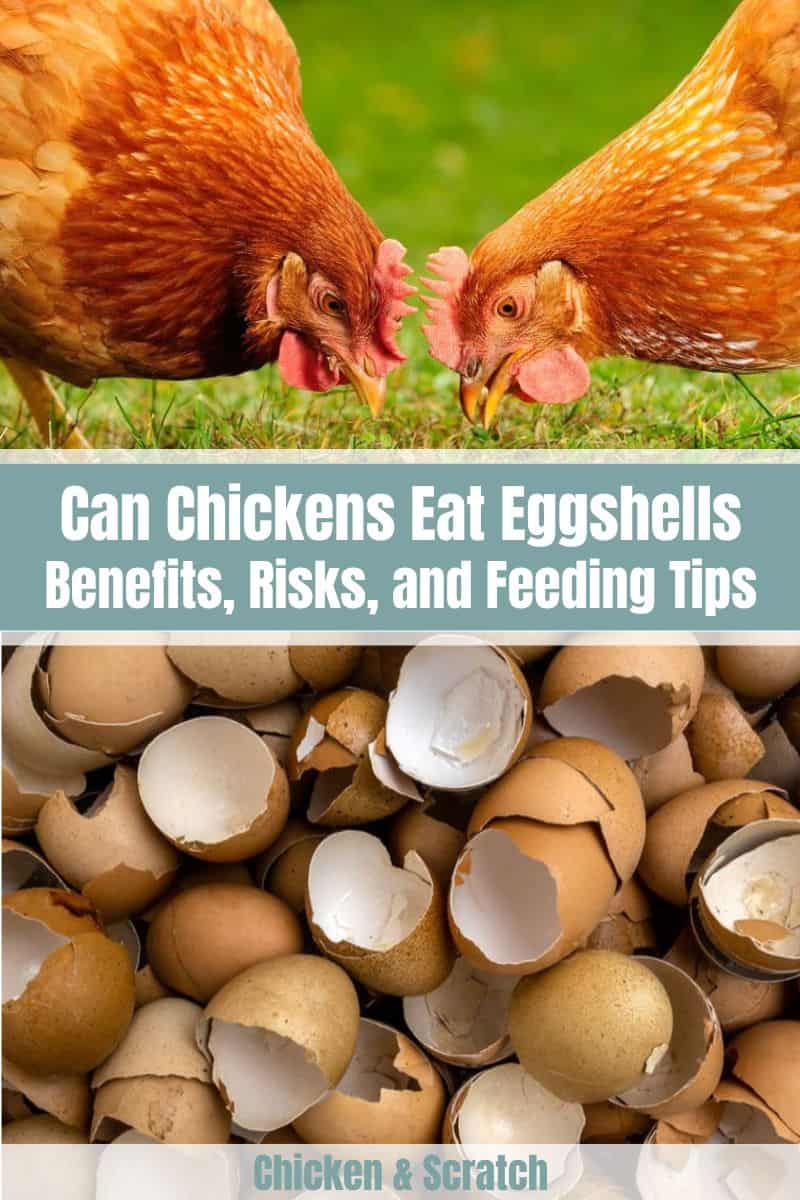

Joseph Hudson has been raising chickens for over 15 years. In 2018, he completed the Agriculture & Natural Resources program at Mt. San Antonio College. He currently raises over 1400 chickens on his 7.5-hectare farm. He keeps sharing his experience on raising healthy and happy chickens on Chicken Scratch The Foundry.
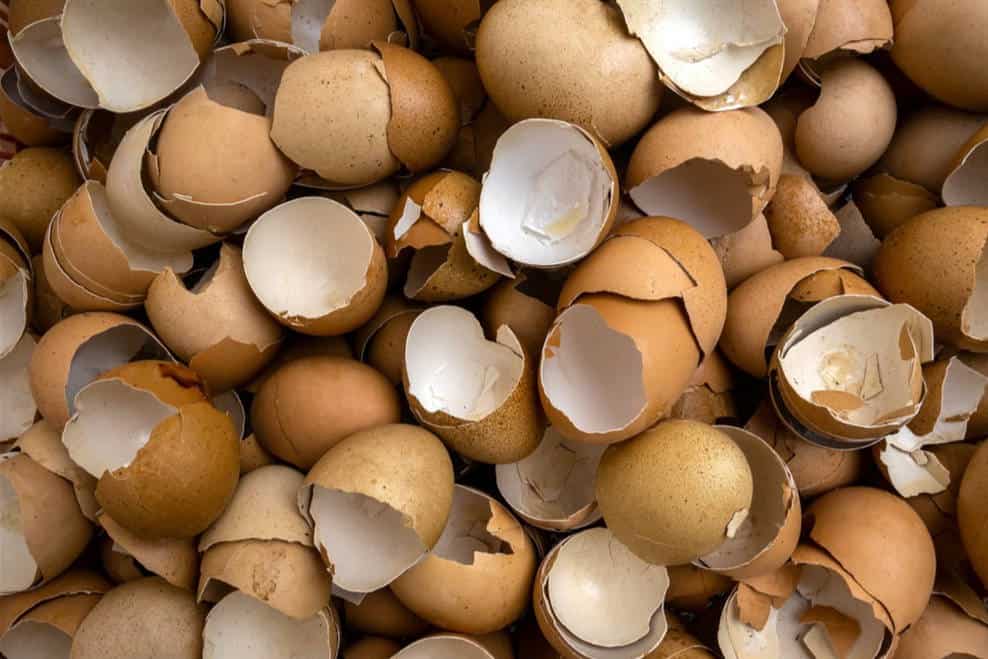







Eggshells don’t need to be baked in the oven. They can be air dried and saved to feed later, or just crushed by hand and fed back to the chickens.